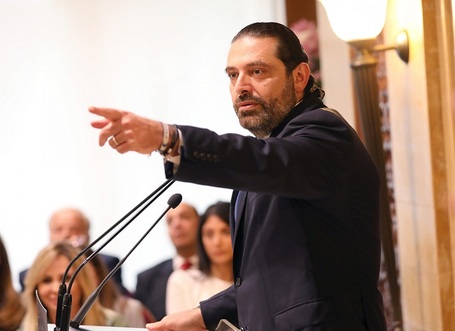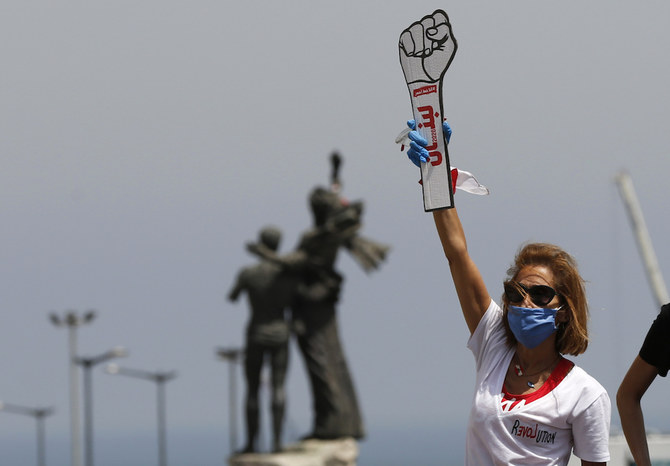
by naharnet — Al-Mustaqbal Movement leader ex-PM Saad Hariri lashed out Friday at Prime Minister Hassan Diab and the rival political parties, accusing them of seeking revenge against “an entire era” while attempting to destroy “the free economic system.” In a strongly-worded statement responding to Diab’s speech earlier in the day, Hariri accused the PM of delivering an “uncalculated” address and declaring a “coup” with a “military language.” “These are dangerous remarks seeking to manipulate people’s sentiments and their social concerns and fear for their livelihood with the aim of distancing himself from the government’s blatant dereliction,” Hariri charged. “This is the phase of revenge against an entire era and they have tasked the premiership with leading the attack,” the ex-PM said. He added: “Bravo, Hassan Diab. You did a good job. Here you are fulfilling their dreams in destroying the free economic system. They are clapping for you at the (presidential) palace.” “How can you ignore the party responsible for half of the public debt through subsidizing electricity and seven years of paralyzing state institutions? How can you not ask about the policies that harmed Lebanon’s Arab and international ties? How can you disregard the responsibilities that should be borne by those practicing a new tutelage over the premiership? Is the central bank governor to blame for all of this?” Hariri asked, addressing Diab.
In his speech, Diab said he is holding Central Bank Governor Riad Salameh responsible for the downward spiral of the national currency, accusing him of pursuing “opaque” policies that sent the pound crashing against the dollar. The government has agreed with Lebanon’s president to hire an independent international auditing company to review the Central Bank’s performance, Diab said. The move, and the premier’s speech, were an indication of a widening rift with the country’s longtime chief financial decision-maker. Diab urged Salameh to speak openly to the public about the financial crisis, hinting that the governor has intentionally engineered the crash of the pound.








